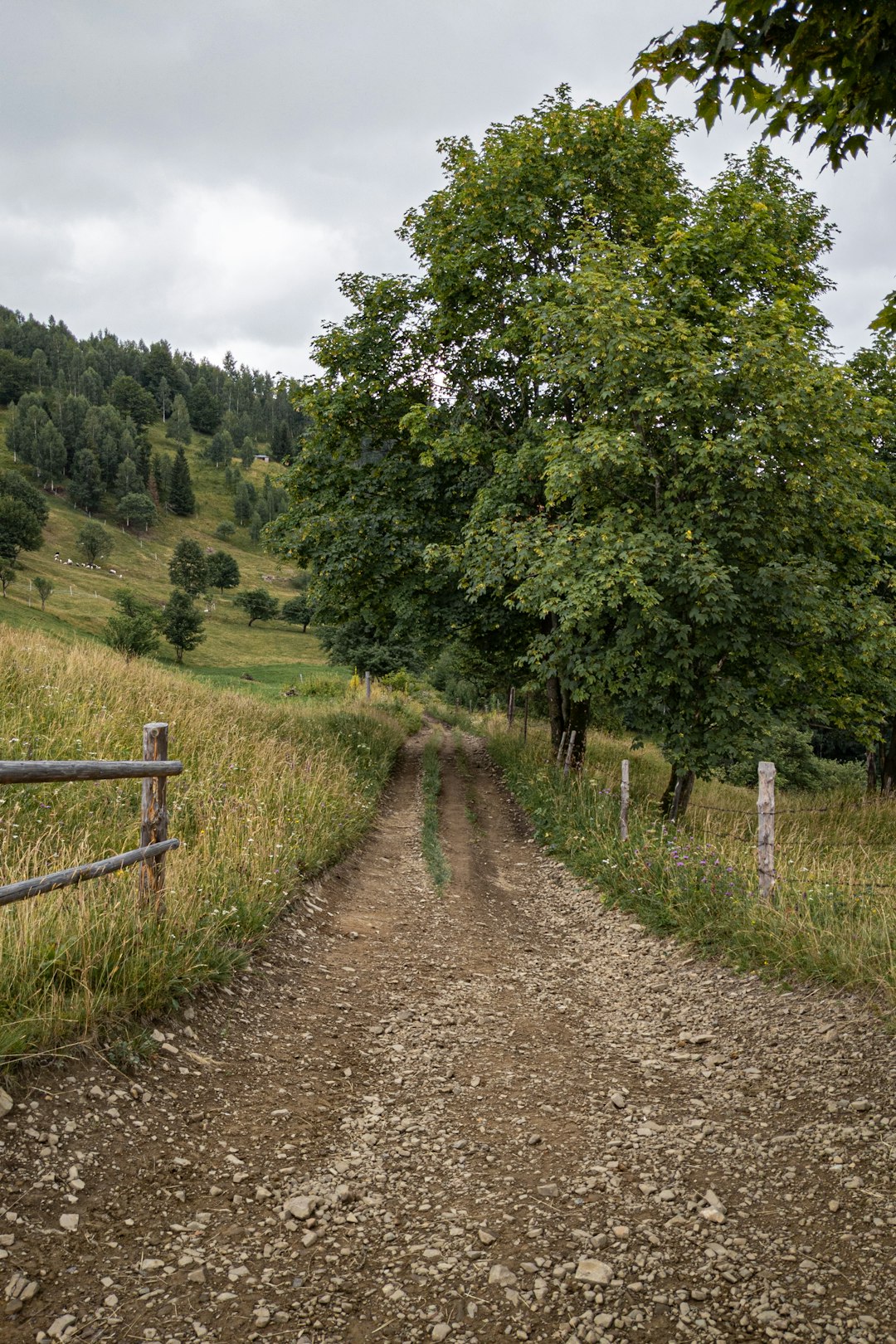Psalm 23: Restoration and Righteousness
Psalm 23:3

“He restores my soul; He guides me in the paths of righteousness For His name’s sake.”
Psalms 23:3 NASB1995
Our walk through the splendid green meadows with our Good Shepherd continues with verse 3 from the 23rd Psalm. I loved the image I found of a path leading to a beautiful hillside meadow with sheep in the distance. The Shepherd would guide His sheep along this path and keep them in His sight.
After seeing to our spiritual and temporal food and drink needs with the comforting images of verdant green grass, rest and clean water, God now restores our souls. Looking at the Hebrew root word used for “restore” (schûwb), it means to turn back or return or refresh. We stubborn and worldly minded sheep often stray from the right path, especially in these days of cheap grace, requiring us to turn back under God’s direction and find that narrow path. C.S. Lewis talks about the easy path to hell:
The safest road to hell is the gradual one - the gentle slope, soft underfoot, without sudden turnings, without milestones, without signposts.
Sheep can stray further and further into the far reaches of meadows, lured on by fresh grass and a dulled or nonexistent sense of danger. Before they know it, they have fallen into a crevasse or are stranded on a cliff or are being stalked by a predator, so the Shepherd is always watchful and helps them turn back. We face the same soft and deceptive paths with temptations, materialism, worldly pursuits, distractions, and evil from the enemy. Our Shepherd turns us back, restores us and carefully guides us in the paths of righteousness, which are for His name’s sake, not ours. Here is what David Guzik says about this verse in his Enduring Word commentary:
He restores my soul;
He leads me in the paths of righteousness
For His name’s sake.a. He restores my soul: The tender care of the shepherd described in the previous verse had its intended effect. David’s soul was restored by the figurative green pastures and still waters the shepherd brought him to.
i. Restores has the idea of the rescue of a lost one. “It may picture the straying sheep brought back.” (Jeremiah Kidner)
ii. “In Hebrew the words ‘restores my soul’ can mean ‘brings me to repentance’ (or conversion).” (J.M. Boice)
iii. “‘He restoreth my soul.’ He restores it to its original purity, that was now grown foul and black with sin; for also, what good were it to have ‘green’ pastures and a black soul!” (Baker commentary, cited in Charles Spurgeon notes)
b. He leads me: The shepherd was a guide. The sheep didn’t need to know where the green pastures or still waters were; all it needed to know was where the shepherd was. Likewise, the LORD would guide David to what he needed.
c. In the paths of righteousness: The leadership of the shepherd did not only comfort and restore David; He also guides His sheep into righteousness. God’s guidance of David had a moral aspect.
i. “They are thenceforth led in ‘the path of righteousness’; in the way of holy obedience. Obstructions are removed; they are strengthened, to walk and run in the paths of God’s commandments.” (George Horne)
d. For His name’s sake: The shepherd guides the sheep with an overarching view to the credit and glory of the shepherd’s own name.
i. For His name’s sake: “To display the glory of his grace, and not on account of any merit in me. God’s motives of conduct towards the children of men are derived from the perfections and goodness of his own nature.” (Adam Clarke)
I love the thought in this commentary that we don’t have to know where we are going — we just need to trust, obey and follow the Shepherd to our spiritual green meadow of rest in His Word and our only source of living water!
My next devotional examines Psalm 23:4 The Valley of the Shadow of Death
Biblical commentary by David Guzik on Enduring Word is used with written permission.


